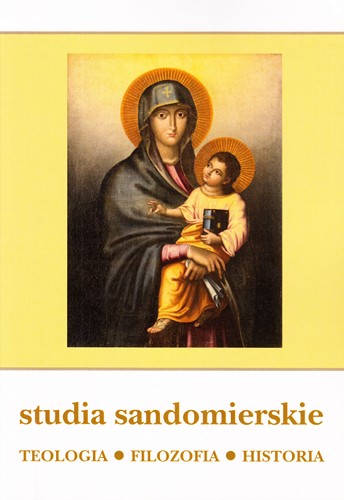Selected Issues Introducing the Topic of Atheism
DOI:
https://doi.org/10.15633/sts.3866Keywords:
Atheism, introduction, terminology, atheism vs. religion, religious beliefAbstract
Atheism has been considered an attractive topic of scientific reflection and discussion in the last decade. The field of interest in the study of atheism today overlaps with many areas of scientific research. Having in mind the current prevalence of atheism and when starting to study this issue, one should ask the question about the best possible starting point. The aim of this short article is to look at whether similar issues are recurring in the studied literature. The answer to the problem above is affirmative, as it is indeed possible to notice several themes repeated in various introductions to atheism. These are, first of all, terminological issues, secondly, related to religious faith and its meaning in the psychological and social context, and thirdly, issues of the attitudes of atheists and non-believers to the content of religious faith, as well as historical issues. Due to the abundance of material, the latter have been deliberately omitted from this text. The remaining topics are listed in the above text and discussed briefly.References
Anzelm z Canterbury, Monologion. Proslogion, tłum. L. Kuczyński, Kęty 2007.
Baggini J., Atheism: A Very Short Introduction, Oxford 2003.
Beit-Hallahmi B., Explaining the Secularity of Academics: Historical Questions and Psychological Findings, „Science, Religion and Culture” 2 (2015), nr 3, s. 104–119.
Bremer J., Wprowadzenie do filozofii umysłu, Kraków 2010.
Coleman T., Hood R., Shook J., An Introduction to Atheism, Secularity and Science, „Science, Religion and Culture” 2 (2015), nr 3, s. 1–14.
Dennett D., LaScola L., Caught in the Pulpit: Leaving Religion Behind, Durham 2015.
Descartes R., Medytacje o pierwszej filozofii, tłum. M. i K. Ajdukiewiczowie, Warszawa 1958.
Eagleton T., Rozum, wiara i rewolucja. Refleksje nad debatą o Bogu, tłum. W. Usakiewicz, Kraków 2010.
Galen L.W., Does Religious Belief Promote Prosociality? A Critical Examination, „Psychological Bulletin” 138 (2012), nr 5, s. 876–906.
Galen L.W., Kloet J., Mental Well-Being in the Religious and the Non-Religious: Evidence for a Curvilinear Relationship, „Mental Health, Religion & Culture” 14 (2010), nr 7, s. 673–689.
James W., The Will to Believe and Other Essays in Popular Philosophy, Londyn 1912.
Jong J., On (not)defining (non) religion, „Science, Religion and Culture” 2 (2015), nr 3, s. 15–26.
Judycki S., Sceptycyzm i dowód ontologiczny, „Analiza i Egzystencja” 11 (2005), nr 1, s. 9–29.
Kotarbiński T., Przykład indywidualny kształtowania się postawy wolnomyślicielskiej, w: Religia i ja, red. T. Kotarbiński i in., Warszawa 1981.
Kowalczyk S., Filozofia Boga, Lublin 2001.
Kowalczyk S., Podstawy światopoglądu chrześcijańskiego, Wrocław 1985.
Krąpiec M.A., Elementy filozofii poznania, w: Wprowadzenie do filozofii, red. M.A. Krąpiec i in., Lublin 2012, s. 335–396.
Langston J., Hammer J., Cragun R., Atheism Looking in: On the Goals and Strategies of Organized Nonbelief, „Science, Religion and Culture” 2 (2015), nr 3, s. 70–85.
McBrayer J., The Wager Renewed: Believing in God is Good for You, „Science, Religion and Culture” 1 (2014), nr 3, s. 130-140.
Mikloušić I., Lane J., How the Non-Religious View the Personality of God in Relation to Themselves, „Studia Humana” 8 (2019), nr 3, s. 39–57.
Moskal P., Religia i prawda, Lublin 2008.
Nowicki A.R., Ateizm, Warszawa 1964.
Quillen E., Discourse Analysis and the Definition of Atheism, „Science, Religion and Culture” 2 (2015), nr 3, s. 27–34.
Shrell-Fox P., When Rabbis Lose Faith: Twelve Rabbis Tell Their Stories about Their Loss of Belief in God, „Science, Religion and Culture” 2 (2015), nr 3, s. 131–146.
Sobór Watykański II, Konstytucje, Dekrety, Deklaracje. Tekst polski, wyd. III, wyd. Pallotinum, Poznań, b.d.w.
Zdybicka Z., Człowiek i religia, w: Wprowadzenie do filozofii, red. M.A. Krąpiec i in., Lublin 2012, s. 469–514.
Zdybicka Z., Drogi afirmacji Boga, w: Wprowadzenie do filozofii, red. M.A. Krąpiec i in., Lublin 2012, s. 397–468.
Downloads
Published
Issue
Section
License
Copyright (c) 2021 Bartłomiej Krzos

This work is licensed under a Creative Commons Attribution-NonCommercial-NoDerivatives 4.0 International License.
Authors who publish with this journal agree to the following terms:
- Authors retain the copyright and full publishing rights without restrictions, and grant the journal right of first publication with the work simultaneously licensed under a Creative Commons Attribution 4.0 International License that allows others to share the work with an acknowledgement of the work's authorship and initial publication in this journal.
- Authors are able to enter into separate, additional contractual arrangements for the non-exclusive distribution of the journal's published version of the work (e.g., post it to an institutional repository or publish it in a book), with an acknowledgement of its initial publication in this journal.
- Authors are permitted and encouraged to post their work online (e.g., in institutional repositories or on their website) prior to and during the submission process, as it can lead to productive exchanges, as well as earlier and greater citation of published work (See The Effect of Open Access).

